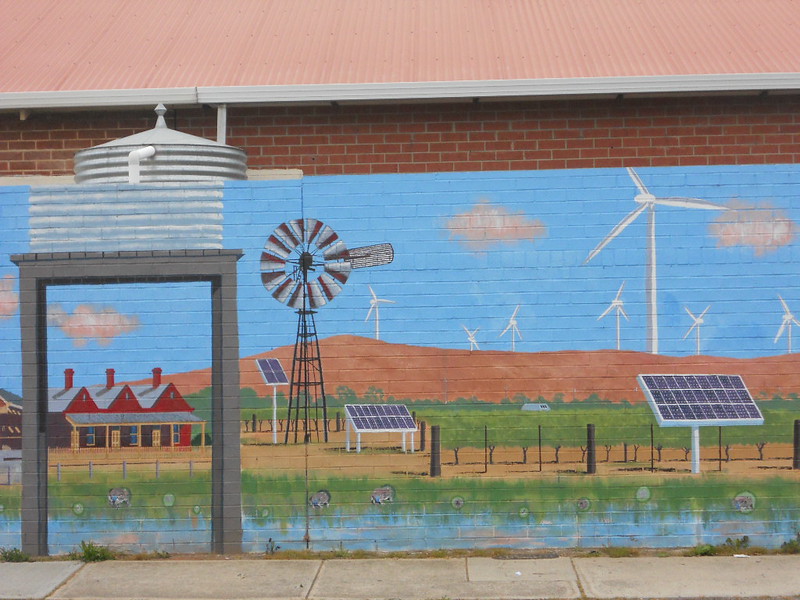Is Sustainability Sustainable?
Its a buzzword, spray-painted across so many commercial taglines, and unconsciously uttered by so many mouths, but are we all caught in a trap of understanding what sustainability really means? We find safety in it, which is why it's such a good vehicle for marketing, because, after all, isn't that what humans really want - to find shelter, to be safe?
Thing is, there's a flaw, a gaping hole. If we scratch below the surface it's glaringly obvious. Sustainability, in the way we commonly think about it, is not actually sustainable! Let me explain...
Sustainability is "the quality of causing little or no damage to the environment and therefore able to continue for a long time" (according to the Cambidge Dictionary). It means working with the planet to ensure future generations are not compromised. But here's the rub - its a materialistic concept - built on the belief that matter is the fundamental substance in all nature, and that all things, including mental states and consciousness, are the resultants of material interactions. So what we think of as sustainable implies that if we just treat the material world properly, it will continue to give us shelter and we'll all be okay. But that ain't necessarily so.
A certain Mr Marx, one of the best economic analysts of the last millennium, fell into this trap when proposing his solutions to the economic problems he had identified. While I cannot really dent his analysis of capitalism, his proposals for solutions had more than a few rusty spots, the main one being that he tried to propose a materialistic solution to the problems. One could argue that the wheels were destined to come off the communism wagon from this point on, because life is so much more than just materialism. In fact - materialism itself, we are seeing now, is a large part of the problem!
If humans are reduced to thinking of life in purely materialistic terms, then their desires, their hopes and dreams become ensconced in material reward - entrapped in cycles of consumption, commodification and shop-till-you-drop. As I said earlier, if humans desire shelter, then they will need a ton, no, make that twenty, of material things in order to feel safe and sheltered by this material world for any period of time.
Actually, this desire for shelter can never really be quenched by any discrete material things - it's our nature to always want something more, something better, no matter how much stuff we acquire (starting to see now why this physical sustainability is so powerful as a sales pitch?)
Sustainability has become the art of selling you material items or ideas in a way that makes you feel sheltered for a while, but knowing that the feeling itself is not sustainable. Sooner or later, that feeling of safety will wear off and you will be looking for the next sustainability fix. That electric car you just bought - how are they disposing of the rare-earth metals in the batteries? Shouldn't you be buying this brand new hydrogen powered model?
We do need a better definition of sustainability - a broader one. One that acknowledges and includes that human life is more than material - it's physical, as well as mental as well as spiritual. This new definition needs to be based around the realisation that our desire for shelter is infinite - we will never feel permanently safe or at peace by buying something limited.
This infinite want can only really be fulfilled by something of infinite magnitude - which needs to happen in the arena of infinite things - that, precisely, is the core of spirituality. (Yes, the church may have distorted this somewhat, but do you see why writing off religion as an opiate may have been a mistake, Karl?).
Our new definition of sustainability needs to include the concept of mental sustainability - what is needed to nurture the gardens of the mind and keep them healthy. Mental flourishing does not take place when you water your cerebellic roots with a stream of pseudo-cultural edu-tainment, escapist claptrap or Orwellian doublespeak. In fact, many of the subtle techniques that are used to sell us goods through the medium of sustainability are downright mentally exploitative and harmful.
Take for example fear - it's a natural instinct in all animals, but it can be so easily exploited to get you to make an irrational decision - for example to buy a new anorak from recycled bottles (I am not saying you should not buy the anorak, just that you should not decide to buy it based on your fear, because then you are probably buying something you do not need). Like the body, the mind thrives based on what it is fed, and so sustainability needs to produce healthy mental foods and healthy psychic eco-systems too.
Ultimately the planet is not sustainable - at some point our sun may supernova or our planet may lose its magnetic flux and be decimated by solar particles. I have every faith that humans will have found a way to inhabit other planets by then.
Ultimately the mind is not sustainable either - what is born will surely die at some point.
And ultimately, the spirit doesn't need sustaining because, well - it just persists.
But here, on this planet, at this time and in this person, you and I need an environment that is truly sustainable - physically, mentally and spiritually in order that this wonderful expression called life can continue to happen.

